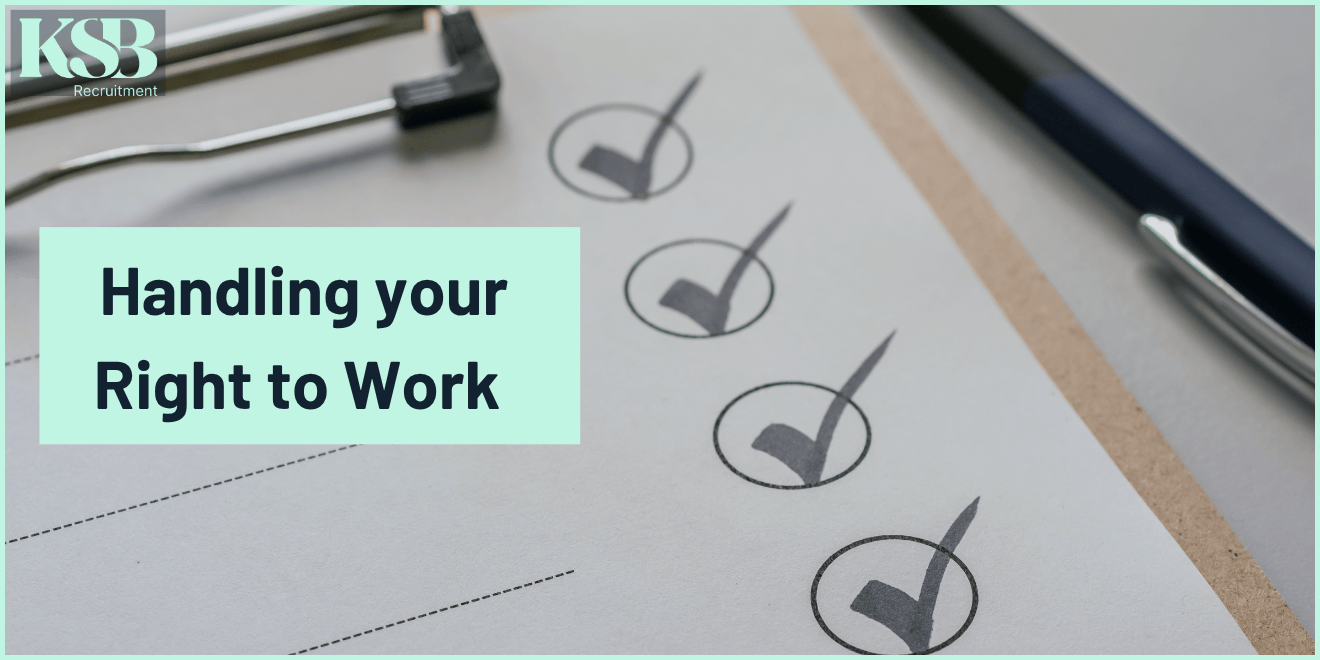Right to Work Checks in Hospitality: Why It’s Your Responsibility—Not Just Your Recruiter’s

In hospitality, temporary staffing moves fast. You need people in the kitchen, on the floor, or behind the bar, yesterday. But before anyone steps into uniform, there is a legal box that can not be ignored: the Right to Work check.
Too often, employers assume that if they use a recruitment agency, that box is already ticked. But UK law says otherwise. If you are hiring temporary workers, even via a third party, you are still responsible for ensuring they have the legal right to work.
⚠️ If they do not? You could face fines of up to £60,000 per illegal worker. That is not just a penalty, it is a business risk you can’t afford to take.
Let us break down what Right to Work checks really mean, why they matter now more than ever, and how to spot if your current recruitment supplier is exposing you to hidden compliance issues.
Why Right to Work Checks Matter More Than Ever
The UK government has been cracking down on illegal working, particularly in sectors like hospitality, catering, and care where temporary labour is common.
And their message is clear:
👉 “If you did not check, you are liable.”
Even if your agency provided the worker. Even if you didn’t know. Ignorance is not a defence.
In fact, in 2023 alone, over 5,000 civil penalties were issued to businesses across the UK for employing workers without valid documentation. Home Office enforcement visits are increasing, especially in industries where staff turnover is high and checks are rushed.
In short: you can not afford to assume your recruiter has it covered. You need to check that they are checking, and you must be able to prove it.
What the Law Actually Says
Under the Immigration, Asylum and Nationality Act 2006, all UK employers, including those using temporary agency staff, must:
-
Confirm that each worker has the legal right to work in the UK before employment begins
-
Retain copies of relevant documentation (e.g. passport, visa, share code)
-
Conduct follow-up checks if the right to work is time-limited
-
Ensure that checks are valid and up to date
If you fail to meet these obligations, even unintentionally, you may face:
-
Fines of up to £60,000 per illegal worker
-
Loss of sponsorship licence (if applicable)
-
Reputational damage and potential criminal charges if deliberate negligence is proven
📎 Read the full Right to Work guidance from the Home Office →
Do not Assume Your Recruiter’s Got It Covered
Now here is the scary part: many hospitality businesses don’t actually know if their recruiter is doing Right to Work checks properly.
Ask yourself:
-
🕵️♂️ Have you seen your agency’s documentation process?
-
🧾 Do you receive proof of Right to Work for each worker they supply?
-
📅 Are follow-up checks carried out before visas expire?
-
❌ Do you rely on a verbal “they’re all sorted” from the agency?
If you are not sure—you could be at risk. And unfortunately, not all agencies are as thorough as they should be. Some rely on outdated systems. Some outsource checks to umbrella companies. Others don’t check at all.
Right to Work Self-Audit: What You Should Be Doing
Here is a quick checklist to help you assess if your current staffing setup meets the mark:
✅ Receive a copy or confirmation of Right to Work documentation before each worker starts
✅ Ensure your agency uses the official Home Office guidance and online share code system
✅ Confirm that follow-up checks are logged and scheduled (for time-limited visas)
✅ Ask if your agency provides Right to Work audit trails upon request
✅ Keep your own record of supplied documents, even if your agency handles them
✅ Do not rely solely on physical checks—use digital verification where required
If you can not tick all of these boxes, there is a gap that could cost you.
Why It Matters Today (and Not Later)
Many hospitality employers think:
“We’ve never had an issue—it’ll be fine.”
But fines aren’t issued because of intent. They are issued because of oversight. And when the Home Office visits, they won’t care whether your recruiter made the mistake. They will look at you as the employer.
That is why it is crucial to take ownership now. Check what your recruiter is doing. Make sure your internal process is watertight. And remember: proactive action today protects your business tomorrow.
Not Sure What Your Supplier Is Doing?
If you are unsure what Right to Work processes your current staffing agency follows, or suspect corners are being cut—you’re not alone. Many businesses assume the check is done until it’s too late.
We’ve put together a free Right to Work checklist that you can use to audit your current recruiter, or your internal team.
👉 Request your copy here.
It’s free, practical, and can save you tens of thousands in penalties.


